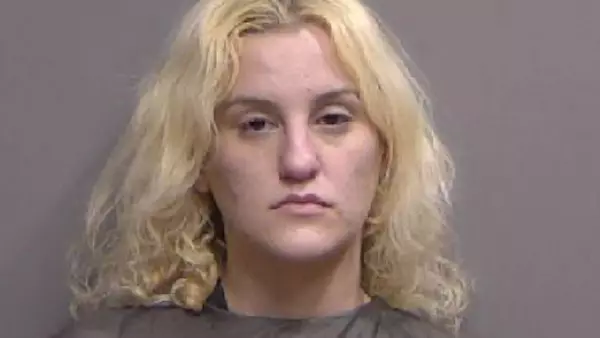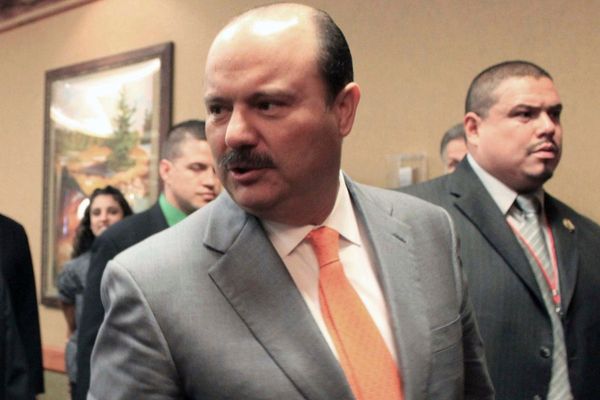The Australian search-and-rescue team in Türkiye has recovered 14 bodies from the ruins left by the magnitude-7.8 earthquake that struck the country more than a week ago.
The team of 72 hand-picked rescue workers is based in the historic city of Antakya, the capital of the southern Hatay province, where they landed on Sunday.
The city is one of the hardest hit by the earthquake and damage is much worse than first thought, says Fire and Rescue NSW, which supplied 52 firefighters to the team.
The Disaster Assistant Response Team (DART) was announced in parliament by Prime Minister Anthony Albanese on February 8, two days after the earthquake devastated a wide swathe of Türkiye and neighbouring Syria.
"These urban search-and-rescue [USAR] specialists are highly trained to locate, deliver medical assistance to, and remove victims who have been trapped or impacted by a structural collapse," Mr Albanese said.
"Our National Emergency Management Agency, or NEMA, is working closely with Fire and Rescue New South Wales, DFAT and the ADF to coordinate the deployment as soon as possible, with an aim to have people on the ground by the end of this week."
The team was in addition to an initial $10 million in aid, later increased to $18 million.
The Australians' accreditation with the UN International Search and Rescue Advisory Group means that four members of the team are coordinating the Hatay province mission, supporting all the other rescue teams.
China, Spain, France, Portugal, India, Argentina, Spain, Moldova, Ukraine and Romania all have rescuers in the region, working with, or under the coordination of, the Australians across 19 worksites in the Hatay province.
A Chinese K9 search team led Australian searchers to a collapsed building where the dogs picked up traces of two victims, FRNSW says.
Teams also worked for three hours in support of a Spanish team after reports of possible survivors under rubble. No survivors were ultimately located.
An estimated 103 people have been saved by local and international first responders in Hatay, according to FRNSW.
However, the total death toll from the earthquake and its aftershocks has reached 35,418 in Türkiye, President Recep Tayyip Erdoğan announced on Wednesday.
In Syria, more than 5,814 have been reported dead across government-held and rebel-held territory, according to a Reuters tally of reports from Syrian state media and a UN agency.
At least three Australians have been confirmed to have died in the earthquakes.
In addition to the search for survivors, the team is also assessing the structural integrity of buildings and infrastructure and working to minimise any further damage, the FRNSW says.
Fire and Rescue NSW Commissioner Paul Baxter said the NSW firefighters were making a positive impression on their international colleagues.
"Our people are well-drilled at these sorts of disasters. They're prepared for anything, especially in USAR environments," Commissioner Baxter said.
"These first responders are professionals of the highest order with terrific technical knowledge that can assist the other international rescue crews around them.
"We're very proud of the job they're doing."
Teams draw upon experience from Christchurch, Fukushima and Thredbo
Team leader Darryl Dunbar has previously worked in Christchurch after the New Zealand city's own disaster, as well as at the NSW Thredbo landslide.
Others in the team have worked at disasters including the 2011 Fukushima tsunami and nuclear accident.
"Türkiye has a population of 85 million and the land mass [affected by the earthquake] is roughly the size of the North Island of New Zealand," Mr Dunbar told AAP at the team's tent-city base.
Despite this, Mr Dunbar says the team remains hopeful of finding survivors
"Part of the process is always to hope for the best," he said, adding that the chances of survival were helped by the cold weather, which can reduce the need for hydration.
But even if theirs is a recovery mission, the work remains vital and the locals appreciate their efforts.
"It brings a level of comfort to the community, and a sense of closure … [to have found] their family members," Mr Dunbar said.
Jasmine Sarin is one of two women working on the front line of Australia's relief efforts.
Despite hearing reports of the earthquake's devastation, the reality has still been shocking.
"No matter how many stories people tell you, until you see it for yourself, it doesn't really hit home," Ms Sarin said as she got on a bus to start her day, searching buildings for survivors.
"It will be good to get out there and help the community."
Working alongside rescue crews are teams of doctors, nurses, paramedics, geotechnical engineers and HAZMAT specialists.
Mr Dunbar said the team's highly specialised work is just as important in Australia, where in the past they deployed to Thredbo following the 1997 landslide, and more recently, as part of the NSW fire and rescue service have responded to major floods across the nation.
The team's drive to support people in crisis overseas is part of the makeup of the Australian personnel, Mr Dunbar said.
"We're always out there supporting and looking after the community, that's just the ingrained process," he said.
"We do that at home in our country, and with our skill set … [and] capability, we want to take that overseas to support people in their greatest need."
There was no shortage of trained Australian volunteers to deploy to Türkiye, but considering the limitations on space and the necessity to transport enough equipment in order to be self-sufficient, it's a crew of 72 for starters.
The Aussie crew will work day and night in 12-hours shifts, helping to relieve exhausted international search teams.
ABC/wires







